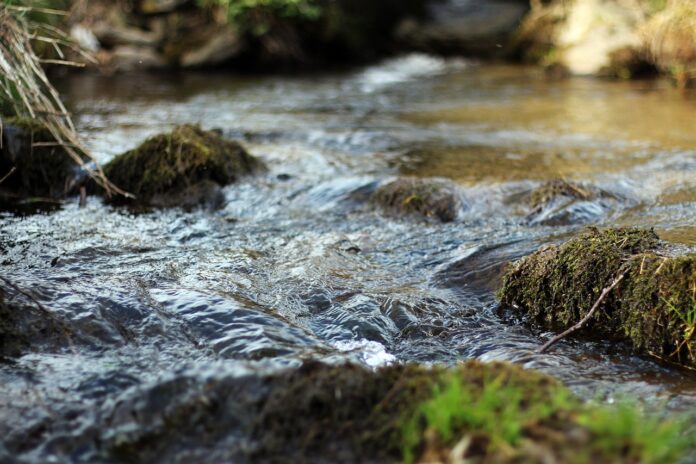Water is one of the most essential substances on Earth, vital for all forms of life. From its ancient origins to its ability to shape landscapes and sustain our bodies, water is far more than just a simple liquid. Yet, despite its ubiquity, water holds many secrets and fascinating facts that may surprise you. From its unique properties to its impact on the planet, here are some incredible facts about water that will make you appreciate this life-giving liquid even more.
The Earth’s Water Supply Is Ancient
Most of the water on Earth is incredibly old—much older than the planet itself. Scientists believe that water was delivered to Earth by icy comets and asteroids from the outer regions of the solar system. This water has been cycling through the Earth’s system for billions of years. In fact, the water you drink today could contain molecules that once quenched the thirst of dinosaurs.
Only 1% of Earth’s Water Is Drinkable
Although water covers about 71% of the Earth’s surface, only a tiny fraction of it is available for human consumption. About 97% of the Earth’s water is found in the oceans, which is salty and unsuitable for drinking. Of the remaining 3%, nearly 70% is locked away in glaciers and ice caps, leaving just 1% of the Earth’s water as fresh, liquid, and accessible. This means that all the water we rely on for drinking, agriculture, and industry comes from this small, precious fraction.
Water Expands When It Freezes
Unlike most substances, water expands when it freezes, making ice less dense than liquid water. This is why ice floats on water. If water behaved like most other liquids, ice would sink, and entire bodies of water could freeze solid from the bottom up, making life in lakes and oceans impossible during the winter months. This unique property of water helps to insulate the water below, allowing aquatic life to survive in cold climates.
Water Exists in Three States on Earth
Water is the only substance on Earth that naturally exists in three physical states: solid, liquid, and gas. Depending on the temperature and pressure, water can transition between these states. This versatility is essential for Earth’s climate and life as we know it. For example, water vapor in the atmosphere forms clouds, which eventually lead to precipitation, replenishing Earth’s fresh water supply.
The Human Body Is Mostly Water
The human body is made up of approximately 60% water, and this percentage is even higher in newborns, reaching about 75%. Water is essential for nearly every bodily function, including digestion, temperature regulation, and waste removal. The brain and heart are composed of around 73% water, while the lungs are about 83% water. Even bones, which might seem dry, contain about 31% water. This means that maintaining proper hydration is crucial for overall health.
Water Can Cut Through Rock
Water is one of the most powerful natural forces on Earth, capable of carving through solid rock over time. This process, known as erosion, has shaped some of the planet’s most spectacular landscapes, including the Grand Canyon. Rivers, glaciers, and rain all contribute to the gradual breakdown and reshaping of the Earth’s surface. Even though it seems gentle, water’s persistent flow can lead to dramatic changes over millennia.
Hot Water Freezes Faster Than Cold Water
In a curious phenomenon known as the Mpemba effect, hot water can sometimes freeze faster than cold water under certain conditions. This counterintuitive behavior has puzzled scientists for centuries, and although there are several theories, the exact cause remains unclear. Factors like evaporation, convection currents, and the properties of hydrogen bonds in water may all play a role in this surprising effect.
The Deepest Water on Earth Is in the Mariana Trench
The Mariana Trench in the western Pacific Ocean is the deepest known point on Earth, reaching a depth of about 36,000 feet (nearly 11,000 meters). At this depth, the pressure is over 1,000 times greater than at sea level, and the temperature is just above freezing. Despite these extreme conditions, life thrives in the trench, with unique species adapted to the harsh environment. The trench is a reminder of the vast and largely unexplored world beneath the ocean’s surface.
Water Has Memory
One of the most intriguing and controversial claims about water is that it has “memory.” This idea suggests that water can retain a memory of substances that were once dissolved in it, even after they have been removed. While this concept has been widely debated and remains unproven in scientific circles, it has inspired research into the structure of water molecules and how they interact with their environment. The idea of water memory has also fueled discussions in alternative medicine, particularly in the context of homeopathy.
The Future of Water Is Uncertain
With climate change, pollution, and population growth, the availability of fresh water is becoming increasingly uncertain. Some regions already face severe water scarcity, and the situation is expected to worsen in the coming decades. According to the United Nations, by 2025, nearly 1.8 billion people could be living in regions with absolute water scarcity. This makes sustainable water management and conservation efforts more important than ever to ensure that future generations have access to this vital resource.
Water is a remarkable substance that plays a crucial role in sustaining life on Earth. As we face growing challenges related to water scarcity and environmental change, understanding and appreciating the true value of water has never been more important
